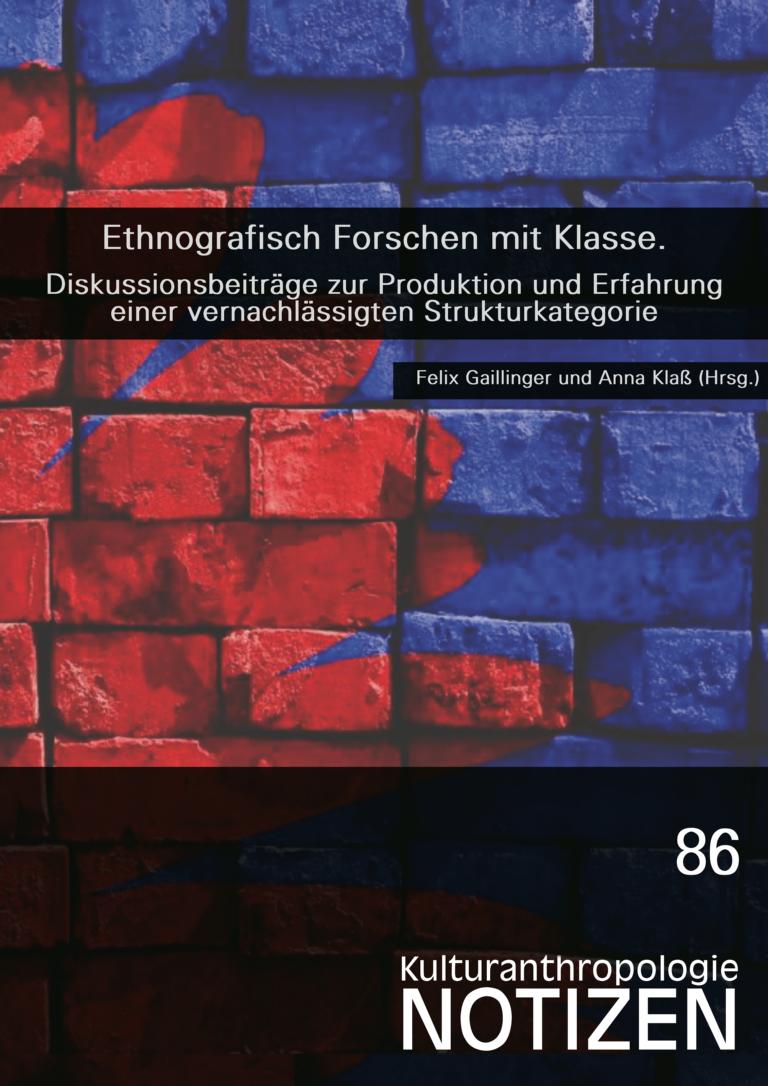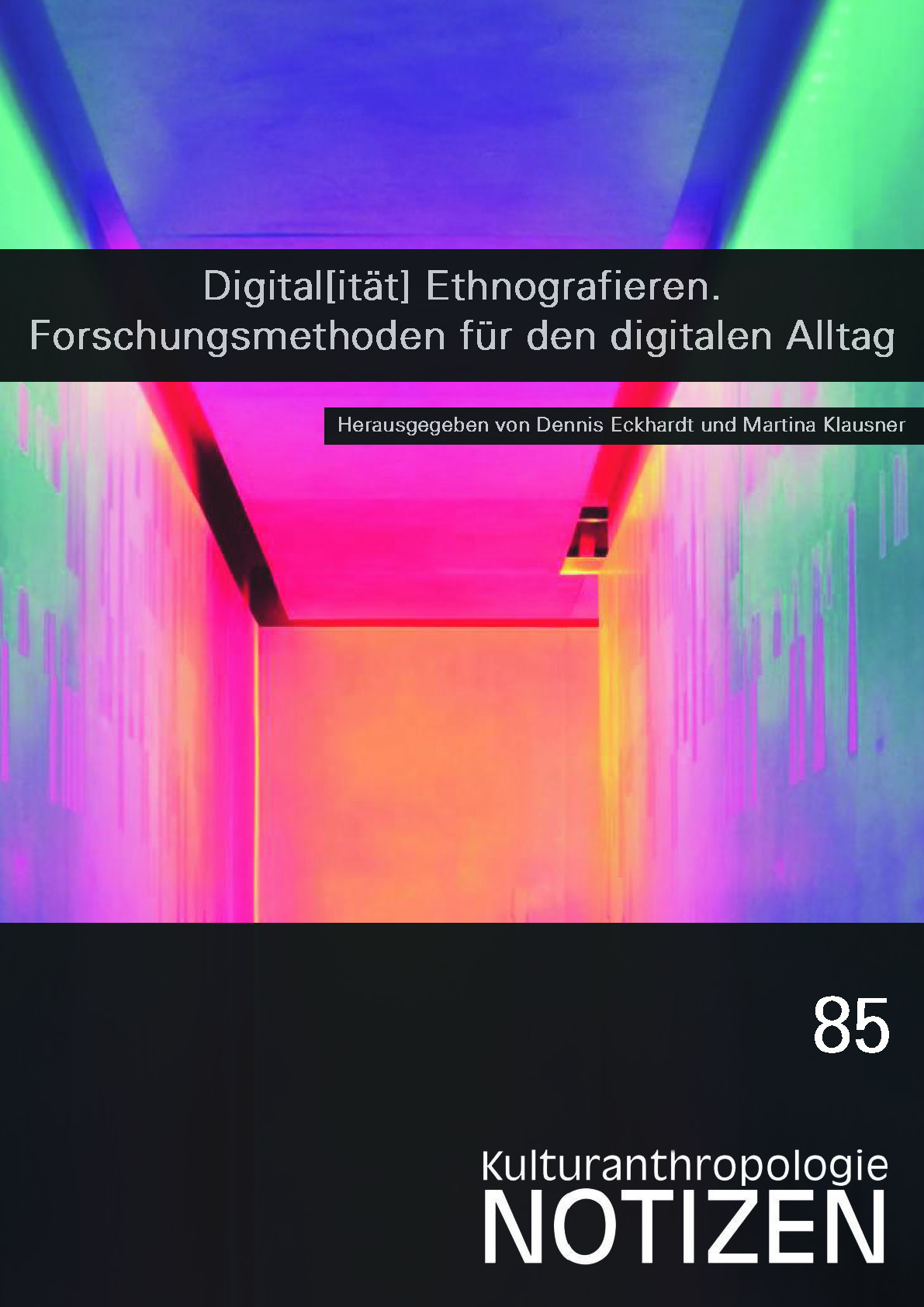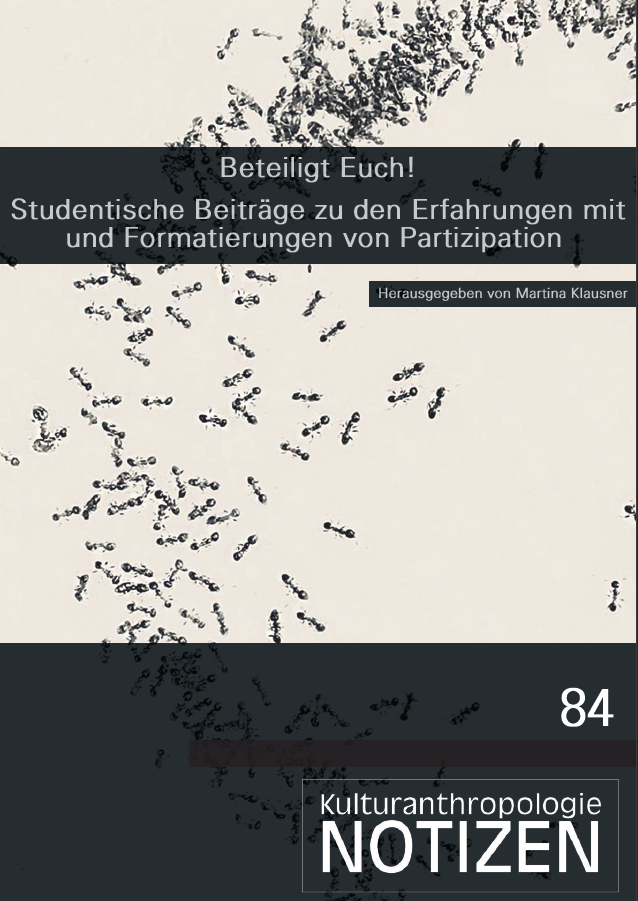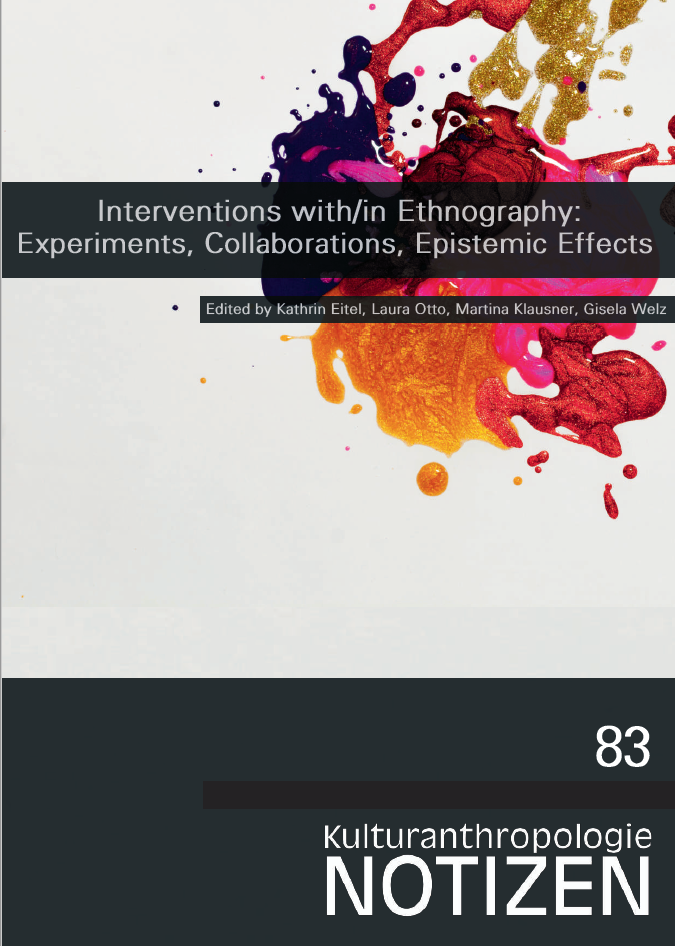Archives
-

Ethnographic Research with Class. Contributions on the Production and Experience of a Neglected Structural Category
Vol. 86Class is a powerful structural category and a dimension of social inequality that can inscribe itself into everyday life and the mundane. In this context, it also impacts ethnographic research practice. Whether it's the way researchers classify and articulate themselves and the experiences they encounter with class consciousness, or the question of which theoretical and empirical concepts of class they utilize. It brings together contributions in which research experiences in and biographical approaches to fields of social inequality are interpreted through a class-analytical lens. This issue follows on from those debates and expands on them. The authors address mobility experiences in academic settings and research fields. They make decolonial and feminist approaches accessible for a class-sensitive perspective on their own research experiences, question controversial terms and concepts of class and classism for their implications for a nuanced naming practice and experiment with how one's own class position and background, when affirmatively foregrounded, can contribute to a specific epistemic inner view.
Gaillinger, Felix and Anna Klaß (eds.) (2024): Ethnographic Research with Class. Contributions on the Production and Experience of a Neglected Structural Category. Kulturanthropologie Notizen 86.
-

Doing Ethnography in Digital Fields. Research methods for digital everyday life
Vol. 85Digital technologies and procedures challenge ethnographic research and its methods in many ways. Not only the fields in which ethnographers do research have long been permeated by the ubiquity of the digital; ethnographers also make use of digital tools and procedures in their own research practice, in data collection and analysis. And even conventional ethnographic methods such as participant observation, field notes, interviews, and document analysis are changing under conditions of the digital. This volume of KA Notizen brings together contributions that propose innovative methods for an ethnography of the digital and and, at the same time, a digital ethnography. Firmly anchored in the tradition of ethnographic research, the contributions present hands-on examples, critical reflections, and practical tips that are especially useful for teaching. They cover a wide range of topics, such as participant observation on YouTube, social media ethnography, the study of computer code as part of ethnographic research, and research data management and re-use of research data. Furthermore, the volume includes a German translation of the pioneering text Rethinking Digital Anthropology by Tom Boellstorff.
Eckhardt, Dennis & Martina Klausner (eds.) (2023): Doing Ethnography in Digital Fields. Research methods for digital everyday life. Kulturanthropologie Notizen 85.
-

Participate! Student Contributions on the Experiences with and Formatting of Participation.
Vol. 84The call to participate and the demand to be involved have become ubiquitous in many areas of society and an imperative of the contemporary. People demand that their point of view and their expertise be taken into account in decision-making processes or are called upon to contribute to design and implement certain projects. What it means in practice to participate can take different forms and produce different experiences. Participation processes are not only objects of cultural anthropological research, but at the same time touch on fundamental methodological questions of a science that considers "participant observation" as fundamental to its knowledge production. The four articles in this volume, which were written as part of a teaching research project at the Institute of Cultural Anthropology and European Ethnology at Goethe-University Frankfurt am Main, present different participation projects and their contexts. They take us to the schoolyard, to a clinical research project, to the museum, and a feminist collective in Uruguay. Drawing closely on the experiences of those who participate, they work out what makes participation possible, but also sets limits, and how the actors deal with the tensions that arise.
Klausner, Martina (Ed.) (2023). Beteiligt Euch! Studentische Beiträge zu den Erfahrungen mit und Formatierungen von Partizipation. Kulturanthropologie Notizen 84.
-

Interventions with/in Ethnography
Vol. 83Interventions are an essential part of doing ethnographic fieldwork. In this issue, we focus on interventions with, in and within ethnographic research and as methodological device. The contributions in this volume of Kulturanthropologie Notizen unveil insights of doing interventions in various fields, such as the global food industry, extractive mining, in mental health care and discuss the impact of the COVID-19 pandemic on our own research practices. In addition, cultural anthropology is discussed as a science in/of transformation, in need of new concepts to address the fundamental societal changes associated with large-scale digital information systems and the rise of global data economies. The authors reflect on various experiments and collaborations during research and reflect their epistemic effects. This issue demonstrates how the taken-for-granted can be challenged, how interventions have the potential to transform dominant forms of knowledge production, and how they allow for re-thinking and re-practicing ethnographic research. In this vein, the issues invites readers to understand interventions with/in ethnography as generating effects within our fields of research, while the practice of intervening simultaneously has the potential to change ethnographic knowledge production.
Eitel, Kathrin, Laura Otto, Martina Klausner, Gisela Welz (eds.), Interventions with/in Ethnography. Experiments, Collaborations, Epistemic Effects. Kulturanthropologie Notizen 83.



